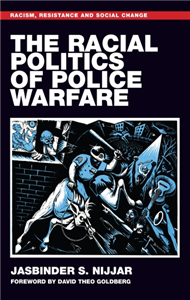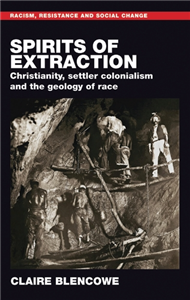Your Search Results
-
Promoted Content
-
Promoted Content
-
 Trusted Partner
Trusted Partner
-
 Trusted Partner
Theory of ArtSeptember 2014
Trusted Partner
Theory of ArtSeptember 2014The Idea of the Avant Garde - And What It Means Today
And What It Means Today
by Marc James Léger
This book is premised on the view that the idea of the avant garde has an increased importance in these times of global political crisis. Much cultural production today is shaped by a biopolitics that construes all creative and knowledge production in terms of capital accumulation. A different kind of culture is possible. This collection of writings, essays, interviews and artworks by many of today's most radical cultural practitioners and astute commentators on matters avant garde mediates the different strategies and temporalities of avant-garde art and politics. Tracing diverse genealogies and trajectories, the book offers an inter-generational forum of ideas that covers different arts fields, from visual art, art activism, photography, film and architecture, to literature, theatre, performance, intermedia and music. This is an extraordinarily rich collection and is sure to be a benchmark for many years.
-
 Trusted Partner
Trusted Partner
-
 Trusted Partner
Humanities & Social SciencesJune 2021
Trusted Partner
Humanities & Social SciencesJune 2021Frantz Fanon, postcolonialism and the ethics of difference
by Azzedine Haddour
-
 Trusted Partner
Trusted Partner
-
 Trusted Partner
Trusted Partner
-
 Trusted Partner
Humanities & Social SciencesMay 2026
Trusted Partner
Humanities & Social SciencesMay 2026The racial politics of police warfare
by Jasbinder S. Nijjar
Amid renewed anti-racist resistance to violent policing, The racial politics of police warfare unpacks the racisms that rationalise militarised policing in contemporary Britain. Jasbinder S. Nijjar shatters prevailing myths about British police as an impartial public service, by revealing it as an institution where racism and war reinforce one another. In examining flagship anti-gang and counter-terrorism policies and practices, the book offers a unique analysis of the relationship between anti-black and anti-Muslim racisms, to demonstrate how racialised populations are institutionalised as common enemies of modernity. Combining perspectives from sociology, history, criminology and social policy, Nijjar illustrates how British policing defends law and order and national security from the perceived threat of race through hyper-intrusive, pre-emptive and deathly measures. Accordingly, he gives a fresh take on resisting racial police warfare, calling for strategies that are at once political, collective, anti-militaristic and abolitionist.
-
 Trusted Partner
Geography & the EnvironmentAugust 2020
Trusted Partner
Geography & the EnvironmentAugust 2020Urban transformations and public health in the emergent city
by Michael Keith, Andreza Aruska de Souza Santos, Susan Parnell
The imperatives of public health shaped our understanding of the cities of the global north in the first industrial revolutions of the nineteenth and twentieth centuries. They are doing so again today, reflecting new geographies of the urban age of the twenty-first. Emergent cities in parts of the globe experiencing most profound urban growth face major problems of economic, ecological and social sustainability when making sense of new health challenges and designing policy frameworks for public health infrastructures. The rapid evolution of complex 'systems of systems' in today's cities continually reconfigure the urban commons, reshaping how we understand urban public health, defining new problems and drawing on new data tools for analysis that work from the historical legacies and geographical variations that structure public health systems.
-
 Trusted Partner
Humanities & Social SciencesJuly 2010
Trusted Partner
Humanities & Social SciencesJuly 2010In/security in Colombia
Writing political identities in the Democratic Security Policy
by Josefina A. Echavarría, Peter Lawler, Emmanuel Pierre Guittet
Based on geo- and biopolitical analyses, this book reconsiders how security policies and practices legitimate state and non-state violence in the Colombian conflict. Using the case study of the official Democratic Security Policy (DSP), Echavarría examines how security discourses write the political identities of state, self and others. She claims that the DSP delimits politics, the political, and the imaginaries of peace and war through conditioning the possibilities for identity formation. In/security in Colombia offers an innovative application of a large theoretical framework on the performative character of security discourses and furthers a nuanced understanding of the security problematique in a postcolonial setting. This wide-reaching study will benefit students, scholars and policy-makers in the fields of security, peace and conflict, and Latin American issues. ;
-
 Trusted Partner
Trusted Partner
-
 Trusted Partner
March 2024
Trusted Partner
March 2024The Strategy of Rescue
The past and present of a power-political concept
by Johannes F. Lehmann
"Rescue” has two fundamentally different “existential” dimensions. One is aimed at “saving” individual lives that are in danger. Firefighters, for instance, rescue people from fires, while the sea rescue services rescue shipwrecked people from the Mediterranean. The second dimension of “rescue”, on the other hand, concerns systems – think of the bailing out of banks, the euro or the climate disaster – and so points to a larger context that creates the conditions for “life” to even be possible, or at least to be preserved. The complex subject of this stringent essay is just to what extent politics enable or prevent “rescue attempts”, to what extent it understands its actions as “rescue actions”, and how decisively the “narrative”, i.e. the “talk of rescue”, ultimately dominates our entire understanding of politics.
-
 Trusted Partner
Humanities & Social SciencesMarch 2025
Trusted Partner
Humanities & Social SciencesMarch 2025Spirits of extraction
Christianity, settler colonialism and the geology of race
by Claire Blencowe
Spirits of extraction revisits the troubling history of socially reformist, ostensibly anti-racist, Christianity and its role in the expansion of the extractive industries, British imperialism, and settler colonialism. The book explores key moments in the history of Methodism and the evangelical movement. Colonial fears, and the attempt to 'civilise savages', were crucial to the movement's foundation in eighteenth-century industrialising Bristol, England. Through the culture of the Cornish mining diaspora of the nineteenth century, Methodism enmeshed with all the complexity of race and labour-structures of the British empire. At the same time, in Anishinaabewaki/Upper Canda/Ontario, Methodist missionaries laid the foundation of abusive education and racialised ideas of redemption that both enable and sacralise the mining industry. Through these histories of our present, the book theorises the relation of religion and education to racism, modernity, biopower, extractivism, and the geology of race.
-
 Trusted Partner
Humanities & Social SciencesDecember 2006
Trusted Partner
Humanities & Social SciencesDecember 2006The biopolitics of the war on terror
by Julian Reid, Simon Tormey, Jon Simons, Bethan Hirst


















